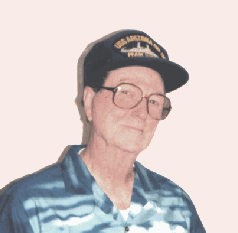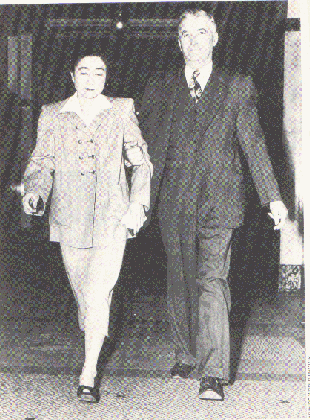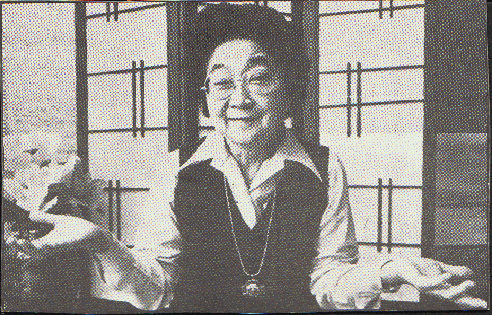|
|
|
|
|
|
|
|
|
|
|
|
|
|
|
|
|
|
|
|
|
|
|
|
|
|
|
|
|
|
|
|
|
|
|
|
|
The People News, a free newspaper serving Cleveland Tennessee (TN) and Bradley County Tennessee (Tn).
Of Bradley County Tn.
FEBRUARY 2005
The People News, a free newspaper serving Cleveland and Bradley County Tn.
|
|
|
|
|
|
|
HOME
|
|
BACK ISSUE ARCHIVE
|
|
EDITORIALS
|
|
LETTERS
|
|
CONTACT US
|
|
|
|
|
|
|
|
|
|
|
|
Tokyo Rose
and The Zero Hour
|
|
|
|
|
|
|
|
Bizarre, Fascinating, and Wacky World War I & ll Secrets.
|
|
|
|
|
|
|
|
|
|

|
|
|
|
|
|
|
by Cecil Owen
Deep in the dense Philippines jungle everybody and everything is asleep, even the birds and animals. Although the tropical rain is beating out a melody on the tin roof. For the barracks building is one of the famous Quon-set Huts. It is a half moon shape, built out of corrugated tin. Both ends are only screened to allow the breeze to blow through. But at this time of the year there is no breeze. Just the continuous rain-rain and more rain. There are just two seasons here in the jungle, wet or dry. Sometimes it rains so hard a rope is secured from the barracks to the chow hall. That is the only way to be sure that you don't get lost. And of course it is always hot-hot and still hotter. It stays so hot that it is possible to go swimming at midnight.
Suddenly, the guard on watch begins to go from bed to bed. "Wake up", he yells, "it is time for The Zero Hour. We do not want to miss everyone's sweetheart Tokyo Rose." The time 0200 (2:00 a.m) but this is the best time to listen to a short-wave radio station. The air is less dense, the reception is much better. A soft, sweet and sexy voice comes over the air waves. "This is The Zero Hour coming to you on short-wave radio station JLP, broadcasting on 15325 kilocycles from downtown Tokyo, Japan. This is Ann the Orphan sending greetings to all of my fighting orphans, especially those in the Pacific islands. Lay down your rifles and forget the mosquito netting for a while. We are going to bring you news from
|
|
|
|
|
|
|
|
|
|
|
|
|
|
|
|
|
|
America, and some hot big band music. Flash, this morning President Roosevelt announced that contrary to a rumor, Prime Minister Winston Churchill was not assassinated in Honolulu, Hawaii. In fact, he is not even in Hawaii on vacation. Oh oh, this is bad news for you Jack Robertson in the 5th Marine division. Back in your home town of Columbus, Ohio, your wife is running around with a big fat 4 F'er. (A 4 F'er was a person rejected by the military service.) "Poor Jack, doesn't that make you want to stop fighting and go home? Listen to my first song for the day, it is called "Playmate." Oh Playmate - come out and play with me- and bring your dollies three-climb up my apple tree - Jump in my rain barrel - slide down my cellar door- and we'll be jolly friends for evermore...... My goodness boys, doesn't that make you homesick? That even made me homesick for I was born in Los Angeles, California."
Well now, just who was this woman that all the G.I. Joes (Military Servicemen) had nicknamed "Tokyo Rose"? Her name is Iva Ikuko Toguri and she was born on the 4th of July 1916. Her father was from British Columbia, Canada and her mother was from Japan. Iva graduated from the University of California, Los Angeles as a premedical student. She
|
|
|
|

|
|
|
|
|
was also a very excellent pianist of concert quality. In July of 1941, Iva's mother's sister in Tokyo, Japan became very sick with diabetes. Iva's mother was
|
|
|
|
|
|
|
|
Iva Toguri, aka Tokyo Rose, escorted by U.S. Deputy Marshal Hubert Cole just prior to her trial on July 5, 1949.
|
|
|
|
|
|
|
|
also very sick at this time. So the family decided to send Iva to Japan to help out. (She would never see her mother again.) There was no time to obtain a passport, so she sailed with only a certificate of identification. Since she only intended to be there a short time, this should have been sufficient. In a few months her aunt began to recover, so Iva applied for a passport. To her surprise, she was turned down by the United States government. Her records had been misplaced and even her citizenship was in doubt. Iva was supposed to leave Tokyo, Japan for Los Angeles, California on December 2, 1941. But because of the government snafu she was still in Tokyo 5 days later when Japan made the sneak attack on Pearl Harbor, Hawaii. So Iva Ikuko Toguri was marooned in Japan for the duration of World War ll. She was a nice looking lady of twenty-five and also Japanese. But because she was an American citizen she received a hard time by most of the other Japanese. They considered her an American spy.
Finally, in August 1943, Iva took a job as a typist for Radio Tokyo. Here 25 Allied soldiers were working, because of their broadcasting experience. (They were given the choice of broadcasting or losing their heads.) The head broadcaster was Australian army Major Charles Cousens, captured in Malaya. Soon he recruited Iva to be the main disc jockey on "The Zero Hour." This was a daily propaganda and music program, beamed throughout the Pacific theater from Tokyo, Japan. It was supposed to destroy the
|
|
|
|
|
|
|
|
morale of the Allied fighting men in the South Pacific. However, it was a complete failure, for we laughed at the propaganda and lapped up the good American music! Now, Iva never referred to herself as Tokyo Rose, but called herself "Orphan Ann." Ann was short for announcer and "orphan" because she was an orphaned American in Japan. Iva became very popular and made 340 broadcasts. At the same time she was secretly helping Allied prisoners of war. She bought food, blankets and medicine on the black market, with her own money. In 1945 Iva met and married Felipe D' Aquino, a newspaperman from Portugal. Now her name was Iva Ikuko Toguri D'Aquino. They had one child but it was still-born.
In 1948, Iva decided to return to California where her father, brother and sister still lived. She arrived on September 28 and was immediately arrested. The Justice department decided to try her for eight counts of treason. (No one knows how they arrived at that figure.) A poll taken showed that 93 percent of WW ll
|
|
|
|
|
|
|

|
|
South Pacific Veterans felt "The Zero Hour" had no demoralizing effects and 84 percent considered it good entertainment. Iva was found not guilty of seven of the charges, but guilty on one count. These 25 words convicted her: "Now you fellows have lost all your ships, you really are orphans of the Pacific. How do you think you will ever get home"? This reference was to the naval battle of Leyte Gulf in October 1944. Do you think this was an act of treason? On October 6, 1949, Iva Ikuko Toguri D'Aquino was sentenced to TEN YEARS in prison, fined $10,000 and stripped of her United States citizenship. She
|
|
|
|
|
|
|
|
An older Tokyo Rose, in an undated photo.
|
|
|
|
|
|
|
|
|
served six years and two months, then was released. In January 1977, President Gerald Ford gave Iva a full Presidential pardon and restored her citizenship.
I will always wonder what happened to the other eight women who also broadcast from radio Tokyo as "Tokyo Rose'? None of them were ever identified and tried for treason. Do you suppose one reason Iva was convicted was because of this statement she made in 1943. "If we ever capture General Douglas MacArthur, he will be publicly hanged on the Imperial Plaza in Tokyo, Japan"
I personally have listened to many of Iva's broadcasts and have found them to be very good entertainment
|
|
|
|
|
|
|
|
HOME
|
|
BACK ISSUE ARCHIVE
|
|
EDITORIALS
|
|
LETTERS
|
|
CONTACT US
|
|
|
|
|
|
|
|
|
|
|

|
|


